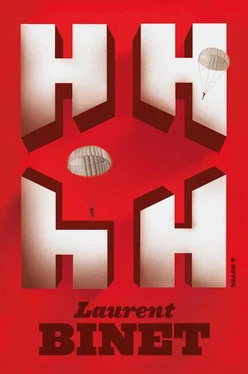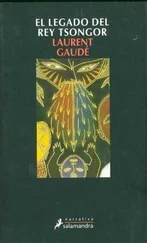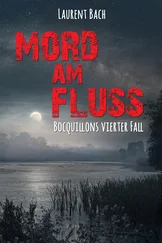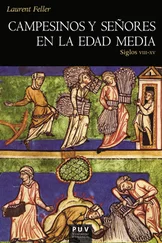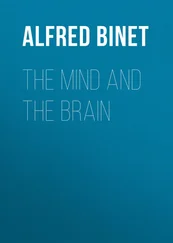“Hello, I’m Zdenek.”
“Hello, I’m Zdenek too.”
They smile at the coincidence. Jozef Gabčík and Josef Valčík have been given the same false Christian name by London. If I were paranoid or egocentric, I would believe that London did this on purpose just to make my story even more confusing. It doesn’t matter anyway, because they use a different name with practically each person they meet. I’ve already made fun of how lightly Gabčík and Kubiš spoke of their mission—sometimes openly—but they knew how to be rigorous when they had to be. And they must have been very professional not to get muddled, to forget who they were supposed to be each time they talked to somebody.
Between fellow parachutists it’s different, and if Valčík and Gabčík introduce themselves as though they’re meeting for the first time, that’s simply so they know what to call each other. Or rather, as this changes so often, which Christian name is on the false ID papers they’re using at that moment.
“Are you staying with the aunt?”
“Yes, but I’m moving soon. Where can I get hold of you?”
“Leave a message with the concierge. He’s safe. Ask to see his collection of keys—he’ll trust you then. The password is ‘Jan.’”
“Yeah, the aunt told me that, but… ‘Jan’ as in Jan?”
“No. Here, he’s called Ota. It’s just a coincidence.”
“Oh, right.”
This scene is not really useful, and on top of that I practically made it up. I don’t think I’m going to keep it.
With Valčík’s arrival in Prague, there are now nearly a dozen parachutists roaming around town. Theoretically, each one works on the mission for which his group was sent. The aim is to keep things compartmentalized, so the different groups are meant to communicate as little as possible. That way, if one falls, the others aren’t dragged down with it. In practice, though, this is almost impossible. The number of addresses where the parachutists can find shelter is limited, but at the same time it is prudent to move as often as possible. As soon as one group or parachutist leaves an address, another takes his place—so all the members of the different groups cross one another’s paths on a fairly regular basis.
In the Moravec family apartment especially, there’s a never-ending procession of all Prague’s parachutists. The father asks no questions; the mother—whom they affectionately call “the aunt”—bakes them cakes; the son, Ata, is overcome with admiration for these mysterious men who hide pistols in their sleeves.
The result of this game of musical chairs is that Valčík, originally part of Operation Silver A, quickly gets closer to Operation Anthropoid. Soon, he’s helping Gabčík and Kubiš scout for locations.
The other result is that Karel Čurda, from the group Out Distance, meets pretty much everybody: the parachutists and their hosts. So many names to drop, so many addresses to let slip.
“I adore Kundera, but the novel of his I love the least is the one set in Paris. Because he’s not truly in his element. As if he were wearing a very beautiful jacket that was just a little bit too big or a little bit too small for him [laughs]. But when Milos and Pavel are walking through Prague, I believe it totally.”
This is Marjane Satrapi, in an interview given to Les Inrockuptibles magazine to promote the release of her beautiful film, Persepolis . I feel a vague sense of anxiety as I read this. Flicking through the magazine in the apartment of a young woman, I confide my anxiety to her. “Yes, but you’ve been to Prague,” she reassures me. “You’ve lived there, you love that city.” But the same is true for Kundera and Paris. Anyway, Marjane Satrapi adds: “Even if I’ve lived in France for twenty years, I didn’t grow up here. There will always be a little Iranian core to my work. I love Rimbaud, of course, but Omar Khayyám will always speak to me more.” Strange, I’ve never thought about the problem in those terms. Does Desnos speak to me more than Nezval? I don’t know. I don’t think that Flaubert, Camus, or Aragon speak to me more than Kafka, Hašek, or Holan. Nor, for that matter, more than García Márquez, Hemingway, or Anatoly Rybakov. Will Marjane Satrapi sense that I didn’t grow up in Prague? Won’t she believe it when the Mercedes suddenly appears at the bend in the road? She goes on: “Even if Lubitsch became a Hollywood filmmaker, he always reinvented and reimagined Europe—an eastern, Jewish Europe. Even when his films are set in the United States, for me they take place in Vienna or Budapest. And that’s a good thing.” But does that mean she’ll think my story is happening in Paris, where I was born, and not in Prague, the city my whole being yearns for? Will there be images of Paris in her mind when I drive the Mercedes to Holešovice, near the Troie Bridge?
No, my story begins in a town in northern Germany, followed by Kiel, Munich, and Berlin, then moves to eastern Slovakia. Passing briefly through France, it continues in London and Kiev before returning to Berlin, and it is going to end in Prague, Prague, Prague! Prague, city of a hundred towers, heart of the world, eye of my imagination’s hurricane, Prague with fingers of rain, the emperor’s Baroque dream, the soul’s music flowing under bridges, Emperor Charles IV, Jan Neruda, Mozart and Wenceslaus, Jan Hus, Jan Žižka, Josef K, Praha s prsty deste , the chem engraved in the Golem’s forehead, the headless horseman in Liliova Street, the iron man waiting to be liberated by a young girl once every hundred years, the sword hidden in a bridge support, and today the sound of boots marching, which will echo for… how much longer? A year. Perhaps two. Three more, in fact. I am in Prague—not in Paris, in Prague. It’s 1942. It’s early spring and I’m not wearing a jacket. “Exoticism is something I hate,” says Marjane. There is nothing exotic about Prague, because it’s the heart of the world, the true center of Europe, and because in this spring of 1942 it is going to be the site of one of the greatest scenes in the great tragedy of the universe.
Unlike Marjane Satrapi, Milan Kundera, Jan Kubiš, and Jozef Gabčík, I am not a political exile. But that is perhaps why I can talk of where I want to be without always being dragged back to my starting point. I don’t owe my homeland anything, and I don’t have a score to settle with it. For Paris, I feel neither the heartbreaking nostalgia nor the melancholy disenchantment of the great exiles. That is why I am free to dream of Prague.
Valčík helps his two comrades in their search for the perfect spot. One day, surveying the city, he attracts the attention of a stray dog. What strange or familiar quality does the animal detect that draws it to this man? It follows his footsteps. It doesn’t take Valčík long to sense a presence behind him. He turns around. The dog stops. He sets off again. The dog follows him. Together, they cross the city. When Valčík gets back to the apartment belonging to the Moravecs’ concierge, where he’s staying, he adopts and names the dog. When the concierge comes home, Valčík introduces him to Moula. From now on, the two of them will scout for locations together, and when Valčík can’t take him, he begs the good concierge to “look after his dragon” (so it must have been a big dog, or a very small one if Valčík was being ironic). When his master goes away, Moula waits quietly for him—curled up under the living-room table, immobile for hours. The dog probably won’t have a decisive role to play in Operation Anthropoid, but I would rather jot down a useless detail than risk missing a crucial one.
Читать дальше
